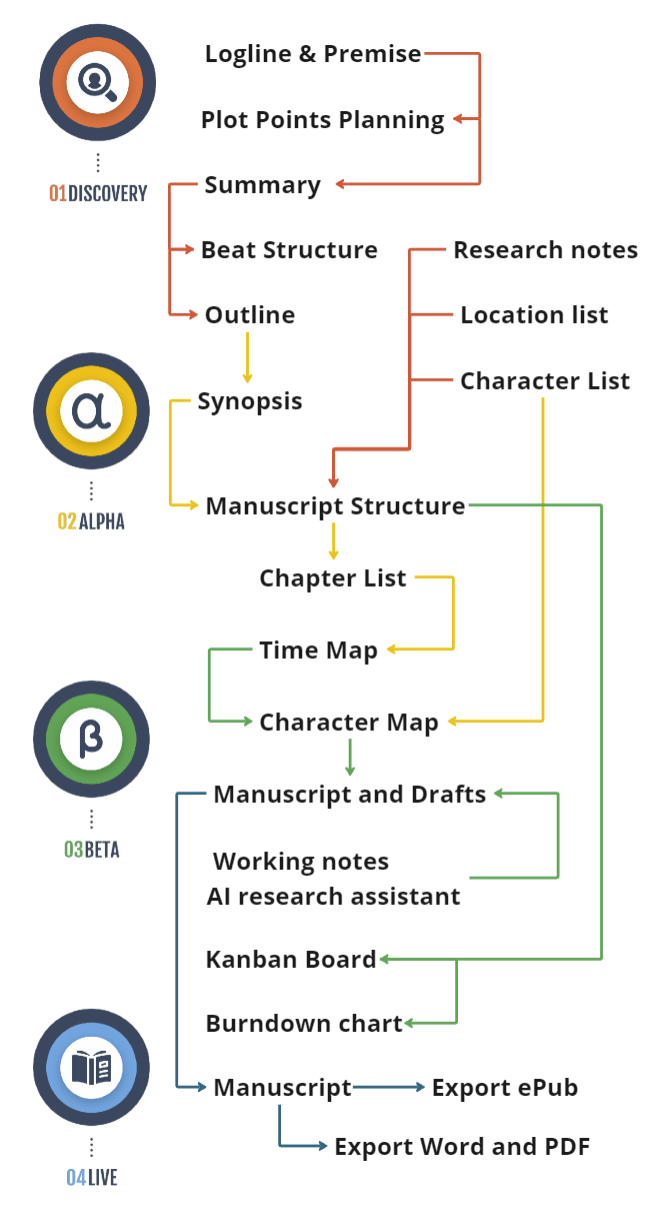DIY Social Media Marketing Plan for writers
or
Research, implement, monitor, and start over
Do not underestimate planning. Search online, you will find templates for a Social Media Marketing plan you can use. Before working with one though, you need the right mindset and you need to do the research.
![]() Marketing is a continuous process. It involves 3 stages roughly:
Marketing is a continuous process. It involves 3 stages roughly:
- Research
- Hard work – implementation
- Monitoring results
1. Research
The experiences of each of your fellow writers represent a huge learning opportunity. It is a resource sparingly used. If you engage them in discussing about their success and failures, you will hear a lot of interesting stories and maybe even skip some steps on your way to becoming a more accomplished writer.
Also, look for product selling on Amazon courses. You can gather a lot of valuable information from those – consider the books for kids segment. It might not be your cup of tea, but knowledge is knowledge.
Follow the blogs of the writers who publish the same genre you write. They always offer useful tips, even if bits and pieces. Check out the groups they are a part of on Facebook and Goodreads. Analyze their followers list on Twitter.
Build your list of champion friends. Discuss with your friends and find out who is willing to share your posts and not just throw a like now and then.
Set an objective. It is easier for your mind to grasp the concept of “I want to sell 500 books by the end of December” than “I want my book to be a best seller.”
2. Hard work
Use the data you gathered during your research and apply it to your work. Review your website. Polish your social media profiles. Prepare images, texts that can help you later on.
For example, this articles series (and another 80 or so I have been writing over the last six months) has the sole purpose of promoting Asengana. So, I keep writing, but I also have a lot of material prepared that allows me to be active and publish often.
When I decided I wanted to be a writer years ago, I started by learning WordPress and social media marketing. I soon realized I will forever learn how to write and that improving my project management approach to writing a book was more useful than honing other skills. Obviously, this is how Asengana was born.
Think of it as a teaser campaign. Make checklists comprising doable tasks every day: Monday – 4 tweets, 2 Facebook posts, one blog, contact 4 fellow writers, ask for reviews and offer to review their work as well
Tuesday – …
Hint – Google search: “checklist for social media activities”.
3. Monitoring results
The sales numbers isn’t the only result you should examine.
You should keep track of the number of followers on each social network, the number of likes and shares for certain posts (this will offer an overview of what gets the attention of your potential readers and what does not), your website traffic (Google Analytics), and anything else you think might be helpful in quantifying the user experience. And you should correlate the result with the amount of effort you put in.
This is the plan. A simple concept which implies a lot of work.
![]() When I teach social media marketing I point out that everything centers around 4 words.
When I teach social media marketing I point out that everything centers around 4 words.
The number of Ps in marketing is still growing but these four should be enough to start with:
- Placement – decide on the social networks you will use based on how much time and effort you’re willing to put in.
- Profile – first impression matters.
- Popularity – your goal is to become popular, to be known. Don’t be shy. Be kind.
- Promotion – hard work and creativity makes the difference.
The unofficial fourth stage is
start over/repeat
The work of promoting yourself or your book never ends. All the dedication you put into proselytizing your ideas and increasing awareness about your published books lays the foundation for the promotion of your next book or might influence the decision making of an agent or a publishing house when it comes to offering you a deal.
You should also read:
SMM 1/7 – Why is the way you define Social Media Marketing important?
SMM 2/7 – Personal branding for writers
SMM 3/7 – The website – a writer’s castle
SMM 4/7 – The story about you writing your story
SMM 5/7 – Social Networks – a like value is 0
SMM 7/7 – Project Management for writers – Kanban




